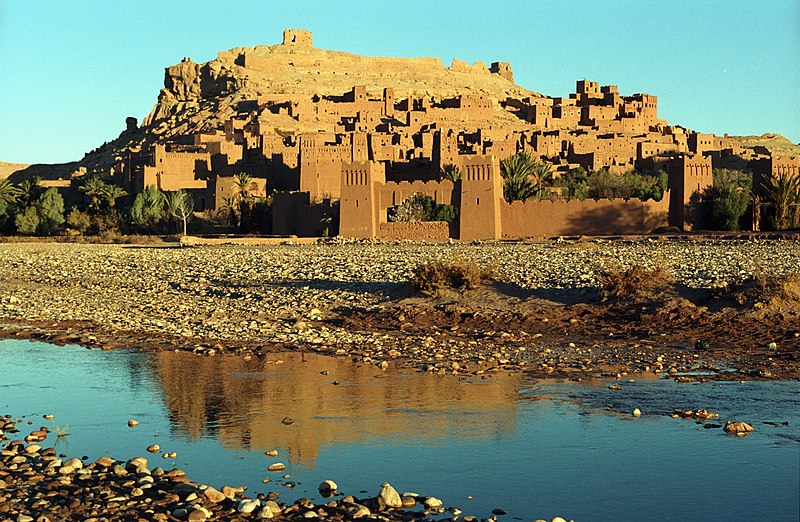 In my last post, I wrote about the techniques used by a charedi Jerusalem school to discourage sephardic girls from applying. But subtle discrimination against sephardim (Jews with family origins in Moslem countries) occurs in all sectors.
In my last post, I wrote about the techniques used by a charedi Jerusalem school to discourage sephardic girls from applying. But subtle discrimination against sephardim (Jews with family origins in Moslem countries) occurs in all sectors.
A friend of mine is looking for a junior high school for her daughter. Another parent urged her to find a more exclusive school than the one in the neighborhood, warning her that “Jerusalem is full of frechot.” Many American immigrants miss the subtle slurs against sephardim and unconsciously (or consciously) adapt them. I hadn’t heard the term often but suspected that it must be referring to sephardi girls, so I looked it up.
Frecha, a common name among Moroccan Jews, means “joy” in Arabic. At the website Ruach Mizrachit Azah (Strong Eastern Wind), blogger Shlomit Leer writes about the 2012 play by Chana Vazna, Frecha is a Pretty Name. The play quotes some of the early leaders’ views on the new immigrants from Moslem countries. Ben Gurion said, “They like it when we work them hard,” and Israel’s third president, Zalman Shazar, said that they “aren’t used to so much education.”
The term inspired the 1995 song, “Frecha” by Sami Shalom Shitrit, sung here by Yemenite star Ofra Haza:
Frecha: Hebrew Lyrics
The singer describes herself as a not-so-bright girl who can’t handle long words. She rejects the Ashkenazi suitor (“a long word”) because he can’t understand a frecha, and she dreams of falling in love with an American from the movies. She dresses in flip-flops and the latest style of jeans. The frecha won’t realize her dreams, nor will she escape the poor neighborhood in which she grew up.
Today a frecha generally refers to a girl who dresses provocatively and is not very studious. According to an article by Tahel Frosh on the evolution of the term frecha. Frecha, along with its male equivalent ars, describe people with exaggerated masculine or feminine characteristics. Stereotypical Ashkenazim are sexually restrained and intellectual. Frechot are cheap, loose and loud. An ars comes from the word pimp (sirsur in Arabic), with an emphasis on violent tendencies.
Leer relates a story about reaction of a Moroccan grandmother named Frecha, when she learned the common usage of her name. From then on, she refused to be known as “Mama Frecha” and asked her children to call her only “Mama.”
Nowadays mizrachim use these terms to refer to other mizrachim, and Ashkenazim can also be frechot and arsim. Initially, someone could be designated as an Ashkenazi frecha. But the word continues to have ethnic connotations, especially when referring to 11-year-old girls.
Note: One of my friends says I have it wrong, and that all the parent was saying was that the serious girls don’t go to the local school.
For more background on the Ashkenazi/Sephardi divide, read my previous post: School Requires Students to Pray with Ashkenazi Accent.
Besides being a racial slur it’s also a nasty generalization about the girls of Yerushalayim.
I knew “frecha” meant slut but I had no idea of its racist origins. It’s a great example of how you can pick up a language (slang included) but still miss nuance.
And of course not ALL girls in Jerusalem are frechot.
Same here (on missing the racist nuance)! Though I did know that “Ars” is often used about Sephardi men…
ars comes from the word pimp (sirsur) = sarsur is Ivrit. ‘Arsawat is the Arabic root for ars :).
Sarsur is a common Arab surname and the Rambam uses the word as well – I don’t know how it became vulgar in Ivrit.
Time to organize a Frecha Walk to protest these racist/sexist slurs.
Never heard the term frecha before – just ars and arsit.
if schools were better at instilling values and giving kids a vision for the future I would be less wary about sending kids to a school with frechot
I have heard “Frecha” as a girl who looks twice her age and acts half her age.
Correction:
I have heard “Frecha” defined as a girl who looks twice her age and acts half her age.
My Sepharadi neighbors tell of the discrimination that they endured when their parents came from Morocco and Tunisia in the ’50s and ’60s. I used to think that such racism was part of Israel’s past, but it certainly isn’t. What is particularly sad is that I don’t see it much in the non-religious public, just among (some of) the Orthodox.
As someone who speaks Hebrew fluently and even serve in the IDF, I can testify that I have never heard of the word “frecha” as being racially charged. It may once have been a racial slur, but now it refers to the way a young woman dresses and behaves, not to her ethnicity. Ashkenazi girls can be frechas, too.